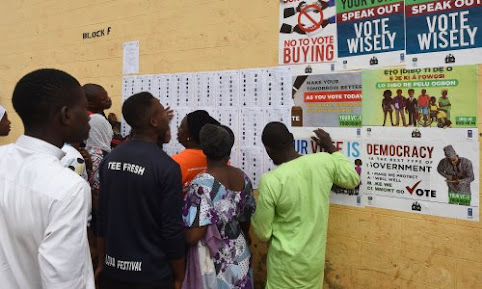By Femi Fani Kayode
Permit me to begin
this contribution with an interesting and historically accurate observation
made by the Vanguard Newspaper on 3rd February 2015.
 |
| *Buhari |
They wrote: "Between
1983 and 1985, Peter Onu of Nigeria
was Acting Secretary-General of the OAU.
“At the 1985
Summit in Addis Ababa,
statesmen like Julius Nyerere, President of Tanzania, lobbied for his election
as substantive Secretary-General.
“However,
there was a major stumbling block to Peter Onu’s candidature: his Head of
State, Muhammadu Buhari, was campaigning against him.
“Buhari
claimed: ‘This generation of Nigerians and indeed future generations have no
other country than Nigeria.’
“But when
the crunch came, his allegiance to Nigeria disappeared. In the
election of the OAU Secretary-General in 1985, Buhari voted against Nigeria and for Niger instead.
“He secured
the election of Ide Oumarou, a Fulani man from Niger;
as opposed to an Igbo man from Nigeria.
“By so
doing, Buhari became the first and only Head of State in the history of modern
international relations to vote against his country in favour of his
tribe".
Graphically illustrated and succinctly put, that is the mindset
of the quintessential General Muhammadu Buhari for you. Yet even in his
triumphs and all his glory he has suffered immense pain and his challenges and
travails are legion.
Consider the following. In 1983 he toppled the much-loved
democratically-elected civilian President Shehu Shagari in a military coup and
became Head of State.
He ruled with an iron fist for exactly 20 months (31st Dec
1983 - 27th August 1985) after which he himself was overthrown in another
military coup led by his erstwhile and again much-loved Chief of Army Staff,
General Ibrahim Babangida. Thereafter he was detained for three years in Benin City.
Exactly 30 years after he was removed from power in 2015 he
was "elected" civilian President on the platform of the APC.
Once again he presided over the affairs of our country for
another 20 months (29th May 2015 - 19th January 2017) until he was struck by an
undisclosed yet strange and debilitating illness, fell gravely ill, was
compelled to formally transmit his presidential powers to the Vice President,
was rushed to the United Kingdom where, up until today, he has remained
incommunicado and on "indefinite medical leave".

-2.jpeg)






